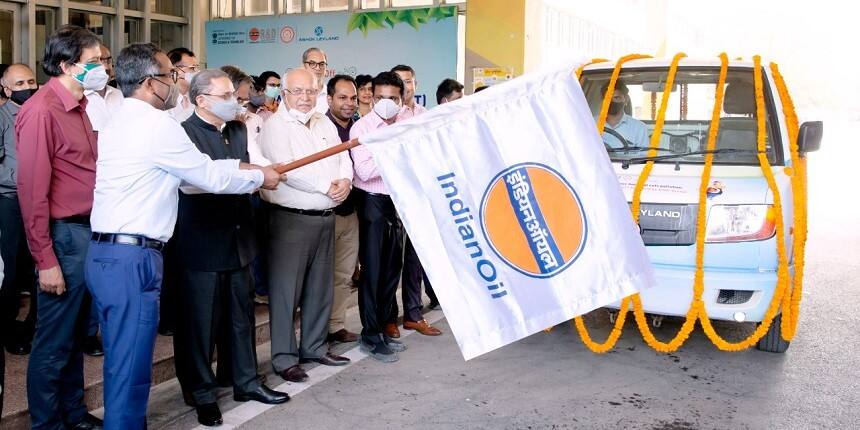IIT Delhi team develops technology to enable use of environment-friendly fuel in vehicles
Vagisha Kaushik | April 26, 2022 | 03:44 PM IST | 2 mins read
IIT Delhi, Indian Oil Corporation, and Ashok Leyland developed flex fuel engine technology in diesel-powered vehicles.
IITs- A Comprehensive Guide
A complete guide to IITs: Learn about the admission process, required cutoffs, fees, top branches, campus details, and updated placement statistics—all in one place.
Download Now
NEW DELHI: Researchers from the Indian Institute of Technology (IIT) Delhi’s Department of Energy Science and Engineering (DESE), Indian Oil Corporation (IOC R&D), and Ashok Leyland Ltd. have developed a technology, which enables a diesel-powered automotive vehicle to run in flex fuel mode, that is, either 100% diesel or Dimethyl Ether (DME) plus Diesel mode. The project was funded by the Department of Science and Technology (DST).
Must See: IITs Comprehensive Guide
Using this technology, the researchers converted a diesel-powered automotive vehicle into a flex fuel vehicle on a pilot basis. This flex fuel technology-based vehicle DOST was jointly flagged off on April 8, 2022 at IIT Delhi by the officials.
Also Read | IIT Guwahati, Indian Register of Shipping to collaborate on training, design of underwater tech
While the flex fuel engine technology for use of DME is developed by IIT Delhi, IOC R&D undertook the endurance and field trials tests and developed the dedicated engine oil with the technical support of Ashok Leyland.
Major highlights of the technology developed by IIT Delhi, IOC R&D, and Ashok Leyland:
- Flex Fuel Vehicle Technology (Vehicle can run both modes: either 100% diesel or DME-Diesel mode)
- The transition of diesel trucks from conventional diesel to DME as an alternative fuel (First phase as Flex Fuel Vehicle; Second Phase as dedicated 100% DME/alternative fuelled vehicle)
- Less or negligible smoke, soot, PM emission
- Lower noise with smoother engine or vehicle operation
- Improvement in transient engine performance
- Enhancement of energy security
- Sustainable environment as there is substantial reduction in Greenhouse Gas Emission
Also Read | ‘Seriously considering’ campus abroad : IIT Delhi director
Speaking about the flex-fuel automotive vehicle technology, Professor K Subramanian, Head, Department of Energy Science and Engineering, IIT Delhi said, “DME fuel is injected into the intake manifold of the engine, and diesel is directly injected into the engine cylinder. The CRDI system controls both diesel and DME fuel injection with respect to the load. The engine or vehicle operates with the optimum DME energy share without a knock.”
Follow us for the latest education news on colleges and universities, admission, courses, exams, research, education policies, study abroad and more..
To get in touch, write to us at news@careers360.com.